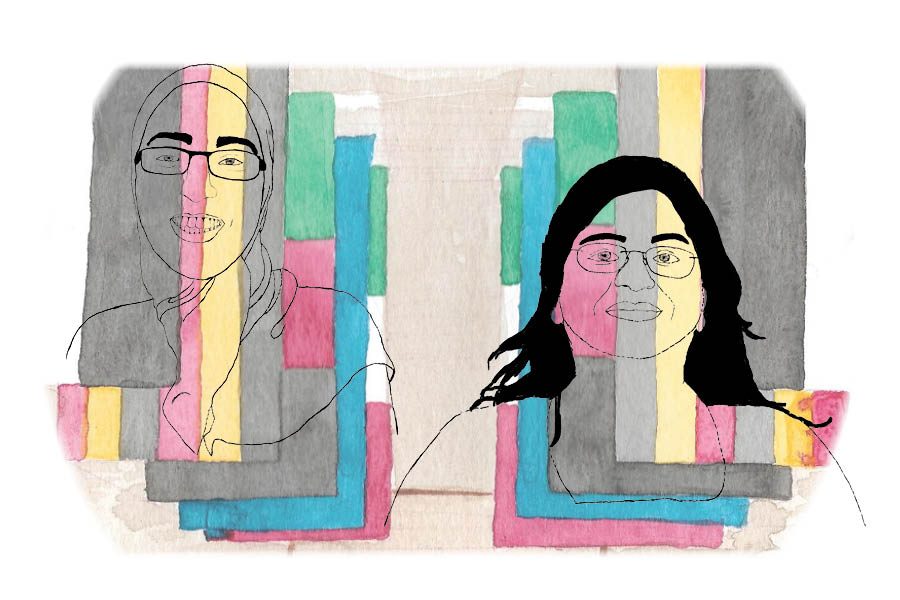Your donation will support the student journalists of Francis Howell North High School. Your contribution will allow us to purchase equipment and cover our annual website hosting costs.
Credit to Kylah Woods and Rebekah Myers
Teachers Rekha Shivaprasad and Fatine Bourkadi provide hope and positivity in the classroom for their students by providing a different perspective
Teachers Rekha Shivaprasad and Fatine Bourkadi Provide Hope and Positivity in the Classroom
Published: November 26, 2018
What was once a 42-student science lab class has slowly dwindled to 23 refugee students. Now, these newcomer refugee students are able to get the one-on-one help that they need to learn the English and curriculum necessary to go into mainstream high schools after their two years at NCNAA.
“In two years, how much they are learning, whatever they are learning is their wealth for the next school,” science teacher Rekha Shivaprasad said. “I teach a lot of different skills, like graphing and each and every conversion of units, which is so hard for them. [Those skills] take time to learn. So, if I can give one on one help, it’s so helpful to them, and they can learn more.”
With recent crackdown on immigration, attendance at NCNAA has decreased within the past two years. Because of the decrease, worry among teachers about the closing of the school has started to rise.
“I am scared that they are going to close the school because of the attendance,” first-year math teacher Fatine Bourkadi said. “Just imagine that you are in a house, and you’re thrown out of your house. That’s exactly how [closing the school] will affect the students. They’re lost, they don’t know the language, they’re in a world where they don’t know anybody and they don’t know how to face that.”
Despite that fear, teachers at NCNAA are responsible for teaching the refugee children as much as they can in two years before they are sent off to mainstream high schools. This includes a variety of tasks, such as how to use a notebook and how to participate in cooperative learning. Shivaprasad finds joy in her work and helping her students.
“I see happy faces, learning children,” Shviaprasad said. “I see their improvement, their positiveness. How they interact with each other, so positively even though they are from so many different countries. How happy they are together, and even though there is still a barrier, they are still nice to each other and respect each other.”
Even though teachers like Shivaprasad and Bourkadi are able to help their students more in the classrooms, they are not able to have the biggest impact possible due to decreasing attendance.
“I don’t have the opportunity to help more students,” Bourkadi said, “It’s affecting my students, and in part, it’s affecting me too. A lot of my students have family back home that were planning to come, but unfortunately, they don’t get to come. They cannot. And that’s affecting them every day.”
While the future of NCNAA and the teachers it employs may be uncertain, the teachers are standing strong for their students.
“It’s just daily life with those kiddos that suffered every day,” Bourkadi said. “It’s a second house for them here and the thing is that we cannot do anything. Our hands are cuffed, and we cannot do anything about it. I hope I can do more and all of us hope the same, but we cannot do anything. You’re seeing it in their eyes every day. You’re seeing every hurt, every pain. But I hope that it’s going to be better. If we don’t have the night, we can’t see the stars, that’s what I tell them. And there will be stars there.”

